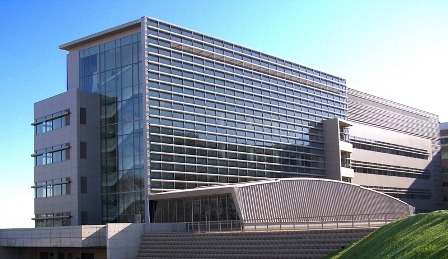
To qualify for the FDA’s Breakthrough Device Program, the medical device must provide more effective diagnosis or treatment of a life-threatening or irreversible debilitating condition, and either represent a breakthrough technology, have no approved or cleared alternatives, offer significant advantages over existing alternatives, or be in the best interest of patients.
Alcyone provided the Agency with information to support that the ThecaFlex DRx System meets all of the Breakthrough Device criteria.
The proposed indication for use reviewed by the FDA for the ThecaFlex DRx System includes, “The ThecaFlex DRx System consists of an implantable subcutaneous port and intrathecal catheter used to provide access for cerebrospinal fluid (CSF) aspiration and infusion of therapies approved for intrathecal bolus administration.
“The ThecaFlex DRx System is indicated for patients 3 or more years of age requiring chronic bolus intrathecal treatment for life threatening, debilitating central nervous system (CNS) disorders such as neurodegenerative diseases and CNS malignancies, who are precluded from lumbar puncture (LP) due to spinal anomalies or who are resistant to repeated LP for therapy administration and CSF aspiration required for therapy administration or monitoring.
“A patient resistant to repeated LP is defined as one with respiratory issues or other comorbidities who is at an increased risk for complications due to the need for repeat anesthesia and imaging radiation exposure to safely perform an LP, and patients for whom the treating physician determines implantation of the ThecaFlex DRx System is otherwise in the patient’s best interests.”
Richard S. Finkel, M.D., division chief, Division of Neurology, Department of Pediatrics at Nemours Children’s Hospital in Orlando FL remarked, “the Breakthrough Device Designation for the ThecaFlex DRx System is an important milestone in the advancement of therapy enabling technologies, to provide potentially safer and more effective treatment of patients with debilitating neurodegenerative diseases such as SMA and Huntington Disease.
“Intrathecally delivered therapies are often challenging to administer, and this novel delivery system will make such drugs more readily accessible to broader patient populations.”
The FDA’s Breakthrough Devices Program is designed to facilitate the development and expedite the regulatory reviews of these devices by providing a pathway for more frequent interactions with the FDA’s experts to identify areas of agreement in a timely way. Elsa Chi Abruzzo, vice president of regulatory, clinical, and quality affairs at Alcyone Lifesciences commented, “the Alcyone Team and our clinical investigators are very pleased that as a Breakthrough Device, the ThecaFlex DRx System will be eligible for prioritized regulatory reviews as we prepare to file an Investigational Device Exemption (IDE) clinical trial submission with the FDA this year to evaluate the safety and efficacy of the device in patients with Spinal Muscular Atrophy (SMA).”
Brian Snyder, M.D., Ph.D., orthopedic surgeon, Boston Children’s Hospital and professor of orthopedic surgery, Harvard Medical School added, “patients who require chronic intrathecal administration of therapy needing repeat sedation with anesthesia or radiographic imaging to facilitate access would benefit from this single surgical insertion of a device that obviates the need for repeat anesthetic or extra radiation exposure.”
The FDA issued a Drug Safety Communication on April 27, 2017 regarding a new label warning stating that exposure to general anesthetic and sedation drugs over multiple procedures may negatively affect brain development in children younger than three years.
“Though currently the ThecaFlex DRx System is designed for patients three years of age and older who tend to have more complex spinal anatomy preventing LP or who generally have more anxiety regarding LP than younger children, Alcyone is planning to miniaturize the ThecaFlex DRx System to also benefit some of these younger patients who may not be able to tolerate LP without sedation,” added PJ Anand, chief executive officer for Alcyone Lifesciences.
Source: Company Press Release



